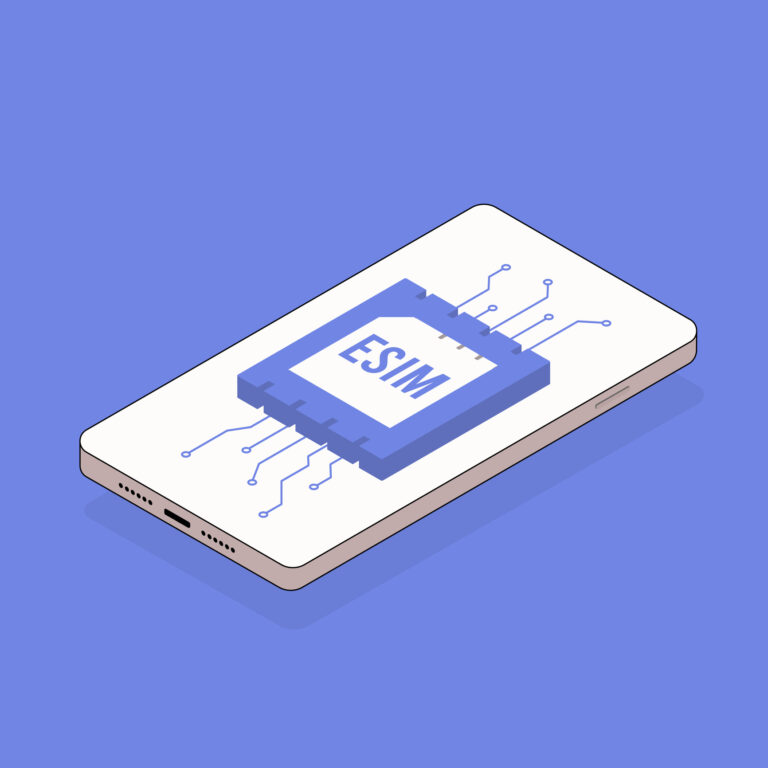
While physical SIM cards have long been the standard, the rise of eSIM technology is revolutionizing how we connect. But for businesses looking to enter this booming market, the real game-changer is the eSIM reseller API.
If you’re wondering how companies like travel agencies, device manufacturers, or even airlines can offer mobile data plans to their customers without becoming a telecom provider themselves, the answer lies in this powerful piece of technology. This guide will break down what an eSIM reseller API is, how it works, and why it’s becoming an essential tool for modern businesses.
LOOKING TO OFFER GLOBAL CONNECTIVITY TO YOUR CUSTOMERS?
eSIMfx can help you unlock new revenue streams.
The Evolution from Physical SIMs to eSIMs
To understand the API, you first need to understand the eSIM. The term “eSIM” stands for “embedded subscriber identity module.” Unlike a traditional SIM card that you physically insert into your device, an eSIM is a small chip built directly into the device’s hardware.
This embedded chip can be remotely provisioned with a cellular plan, allowing users to switch carriers and data plans with a few taps on their phone screen. This eliminates the need to buy and swap out physical cards, making it incredibly convenient for travelers and anyone who wants more flexibility with their mobile plans.
For businesses, this digital nature is where the opportunity lies. Instead of managing a physical inventory of SIM cards, they can now sell digital data plans. This is where the eSIM reseller API comes into play.
What Exactly is an eSIM Reseller API?
An eSIM reseller API (Application Programming Interface) is a digital bridge that connects your business’s platform — like a website, a mobile app, or a customer relationship management (CRM) system — to a wholesale eSIM provider’s network.
Think of it as a set of standardized instructions that allows your software to “talk” to the provider’s system. When you use this API, your platform can perform a variety of functions on the provider’s behalf, such as:
- Accessing a catalog of eSIM data plans: You can instantly retrieve information on data packages, including available countries, data limits, and plan durations.
- Purchasing and provisioning eSIMs: With a single command, you can buy an eSIM plan and provision it for a customer.
- Generating QR codes: The API can automatically generate a QR code that your customer scans to download and activate their eSIM profile.
- Managing customer accounts: You can top up a customer’s data, check their usage in real-time, and handle troubleshooting without leaving your platform.
In simple terms, the API allows your business to sell eSIM plans as if they were your own, without having to build the complex telecom infrastructure from scratch.

Key Benefits for Businesses
Integrating an eSIM reseller API offers a wide range of advantages that can significantly impact a company’s growth and profitability.
1. Generate New Revenue Streams: The most obvious benefit is the ability to create a new, high-margin revenue stream. You can purchase eSIM plans at wholesale prices and resell them to your customers at a profitable markup, all under your own brand.
2. Enhance Customer Experience and Loyalty: By offering a seamless connectivity solution, you solve a major pain point for your customers. Travelers no longer have to worry about finding local SIM cards, and you can provide real-time support, increasing customer satisfaction and building brand loyalty.
3. Global Reach with Minimal Effort: A good eSIM reseller API gives you access to a vast network of mobile carriers worldwide. This means you can offer data plans in over 190 countries without negotiating with each individual carrier.
4. Scalability and Flexibility: The API model is highly scalable. Whether you have ten customers or ten thousand, the API can handle the volume without significant operational changes on your end. This allows your business to grow without limits.
5. White-Label Branding: A key feature of most eSIM reseller APIs is the ability to “white-label” the service. This means your customers will see your brand’s name and logo on the product, not the provider’s, strengthening your brand identity.
Who Should Consider Using an eSIM Reseller API?
While the travel industry is a natural fit, the applications for an eSIM reseller API are expanding. Many different types of businesses can benefit from this technology.
- Travel Agencies and Booking Platforms: Offer eSIMs as an add-on to flight or hotel bookings, providing a complete travel solution.
- Device Manufacturers: Bundle an eSIM service with new smartphones, tablets, or IoT devices, offering a complete, ready-to-use product.
- Airlines and Airports: Provide connectivity options to passengers, helping them stay connected as soon as they land.
- Fintech Companies: Integrate eSIMs into digital wallets or banking apps, offering exclusive perks like international data plans.
- SaaS and Web App Developers: Offer eSIM plans as part of a service bundle, particularly for apps focused on travel, navigation, or communication.
READY TO LAUNCH YOUR OWN GLOBAL CONNECTIVITY SERVICE?
Contact us today to see how we can help you get started.
Getting Started: A Step-by-Step Overview
Ready to dive into the world of eSIM reselling? Here’s a basic roadmap of what to expect when you get started.
- Find the Right Provider: Research and choose an eSIM reseller API provider that aligns with your business goals. Look for providers with a broad network, clear documentation, reliable support, and competitive pricing.
- Integrate the API: Your development team will use the provider’s documentation to integrate the API into your platform. This step involves writing code to handle requests and responses, authenticate transactions, and manage user data.
- Define Your Business Model: Decide on your pricing strategy. Will you offer tiered plans, a fixed markup, or a pay-as-you-go model?
- Marketing and Launch: Market your new service to your existing customer base and beyond. Highlight the convenience and cost savings of using an eSIM.
- Monitor and Optimize: Use the analytics and reporting tools available through the API to track sales, monitor usage, and refine your offerings over time.
In conclusion, an eSIM reseller API is a strategic tool that empowers businesses to enter a rapidly growing market, create new revenue streams, and deliver a superior customer experience. By understanding its functions and benefits, your business can unlock the full potential of digital connectivity and stay ahead in the competitive landscape.


